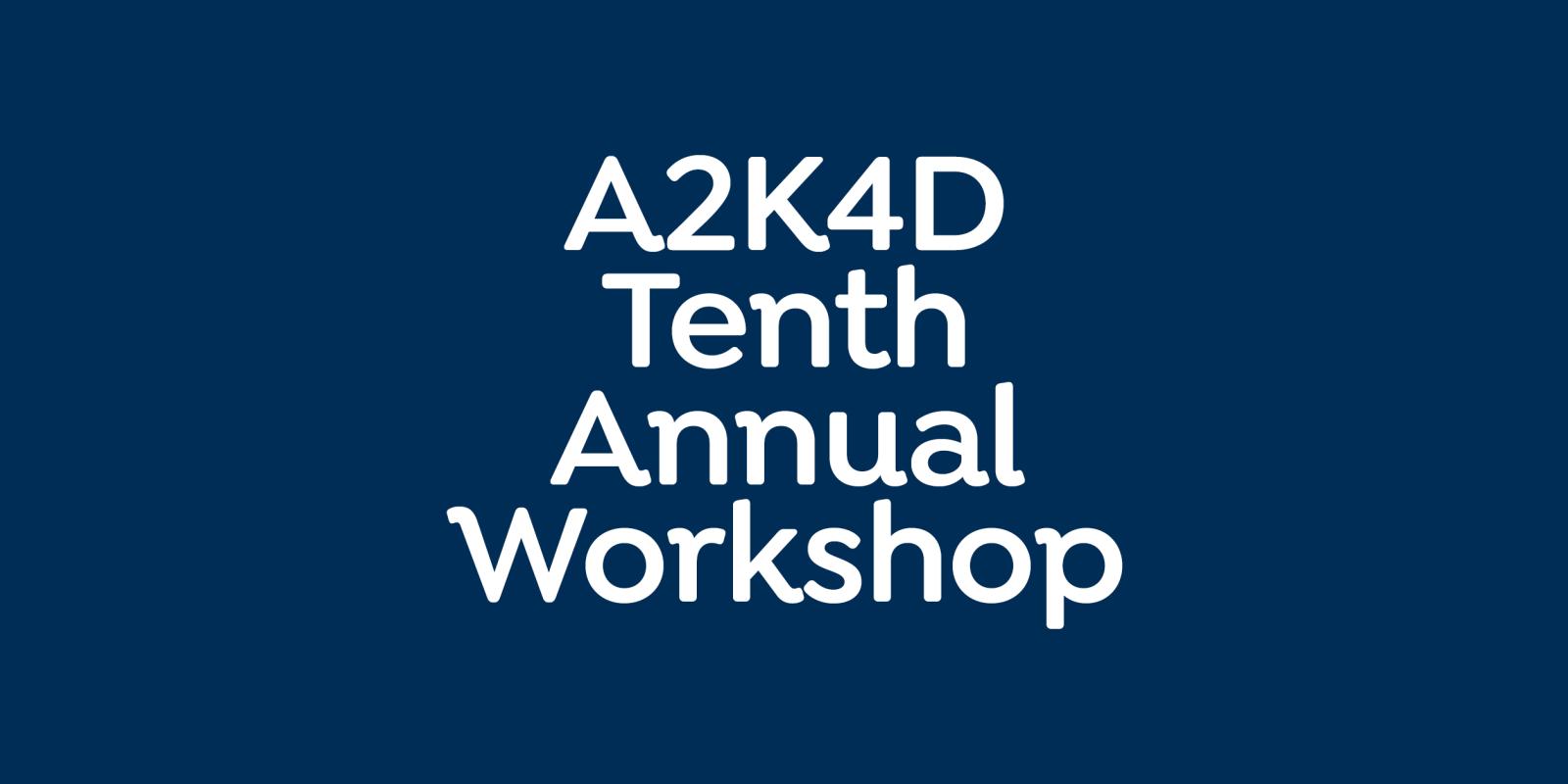
Reforming for the Pandemic: The A2K4D Annual Workshop Goes Online
For nine years, the Access to Knowledge For Development Center (A2K4D) Annual Workshop has been a forum for expert, multi-faceted discussions on future outlooks in development and research in various fields. This year, the tenth round of the A2K4D Annual Workshop was a little different. Adapting to the unprecedented circumstances of 2020, the workshop was held as a series of four online webinars spread over October and November under the theme of “Beyond COVID-19: Conversations on AI, Data, and the Future of Work”.
The Digital Economy Post COVID-19: Global Outlook and Local Contexts
The workshop kicked-off on October 13 with the first webinar titled “The Digital Economy Post COVID-19: Global Outlook and Local Contexts”, hosted in collaboration with Friedrich Ebert Stiftung (FES) Egypt. The panel brought together speakers from different Global South regions to discuss various perspectives on the digital economy post-COVID-19 from Africa, the Middle East, Latin America, and Western Europe. The webinar discussed how the pandemic amplified digital technologies' role and pushed us sooner into scenarios we had anticipated for later in the future. These gave way to multidimensional concerns about the impact of digitization and new technologies especially AI, on markets, production, consumption, education, labor, work practices, expected employment standards, skill development, government operation, and regulation, among other areas. There is now an urgency to focus on the impact of digitization on economic and social well-being and understand the threats, challenges, and opportunities that we face in this brave new world.
Visualizing Innovation: Tracing Data Blind Spots in Egypt
The second webinar was held on October 20, under the title “Visualizing Innovation: Tracing Data Blind Spots in Egypt" and was indeed an opportunity to showcase collaborative research efforts on alternative innovation of A2K4D and its partners Open African Innovation Research Network (Open AIR), the Alternative Innovation Measurement Lab (AIM Lab), SETS North Africa and the Academy of Scientific Research and Technology, Egypt. The aim was to develop a better understanding of innovation data for sustainable development and policymaking. This was especially pertinent given the extent to which the pandemic had highlighted and reinforced the importance of data on innovation, health, education, among other areas.
New Technologies and Open Innovation: The Voice of Young African Scholars
The third webinar was also held on October 20 under the title "New Technologies and Open Innovation: The Voice of Young African Scholars" and shared perspectives and research of new and emerging African scholars, known as NERGS, within Open AIR of which A2K4D is the North African Hub. The scholars reflected on the impact of Covid-19 on their research and innovation in their areas and countries of study. For instance, Open AIR Program Manager Nan Warner shared her experience with the newly-introduced initiative in South Africa, “Community Action Networks,” which works as a social network pairing more privileged suburbs with less privileged ones and discussed the feasibility of continuing this initiative beyond the pandemic. Meanwhile, Strathmore University’s Center for Intellectual Property and Information Technology Law IP Clinic Manager Caroline Wanjiru Muchiri shared her insights on the direction of innovation in Kenya and how the pandemic affected the usually linear development of innovation in the region.
Women, Youth and the Future of Work: Inclusion in Challenging Times
The fourth and last webinar was held under the title “Women, Youth and the Future of Work: Inclusion in Challenging Times'' on November 24 and was also organized in collaboration with Friedrich Ebert Stiftung / Egypt Office. It discussed the discourse on the opportunities and risks of emerging technologies and the impact of the pandemic on work for disadvantaged groups such as youth, women, and those working informally and the future outlook. Speakers shared experiences from the Global North and South and dwelled on inequalities, unemployment, informality, and the widening of the digital divide. Among the points highlighted was defining the “skills for the future,” which help prepare the workforce for the future job market, including retraining and reskilling, creating business models to incorporate and scale pathways to jobs for the disadvantaged. Besides, digitally inclusive policymaking was seen as crucial for ensuring sustainable and inclusive development and opportunities that enable a decent life for those employed informally and youth and women while ensuring mechanisms such as safety nets are in motion to allow for time to adapt to technological changes.
This year’s online format of the A2K4D Annual Workshop, admittedly imposed by the pandemic, couldn’t have represented the workshop’s values and goals any better: a thorough, ongoing conversation on innovation and the future of development. We are looking forward to what next year’s round will look like.
